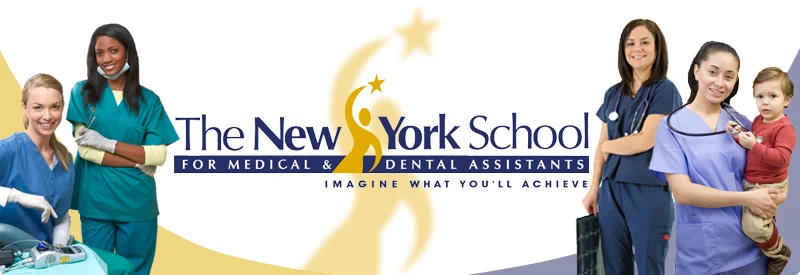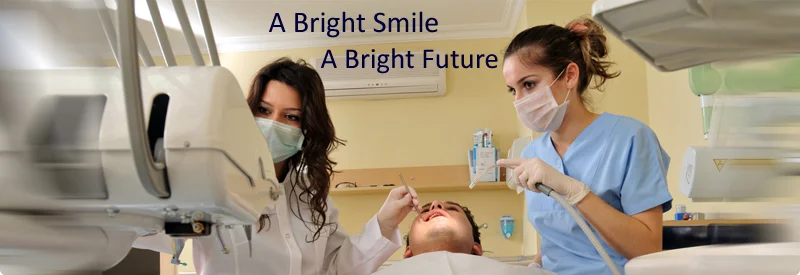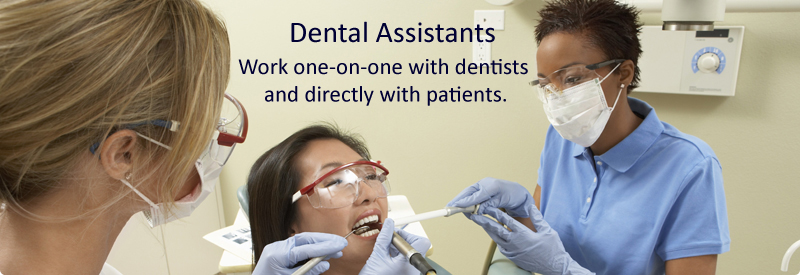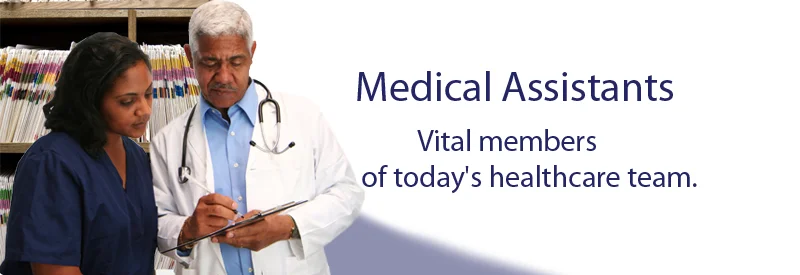Creating the Most Successful Medical and Dental Assistants
/At the New York School for Medical and Dental Assistants our aim is to provide the highest level of training to our students to enable them to successfully secure employment upon graduation. This entails our faculty utilizing best practices to teach the theoretical and clinical skills necessary to perform the various duties required of medical and dental assistants but also providing support systems to assist our students while they are in school.
Another important component of our job readiness programs is our emphasis on professional development. While theory and skills training are essential, it is equally important to provide the wisdom and tools for students to not only keep their jobs, but to excel in them. Please note in advance that we have no desire to curb our students’ personal expression; we simply want to share what we’ve learned over many years for our students to achieve lifelong success.
Our Career Services Department has developed an extensive database of do’s and don’ts in the workplace to increase our graduates’ chances of success. While many of the items I will share in this message might seem a bit obvious, our experience has clearly shown that reinforcement of them needs to occur throughout the educational journey.
In the spirit of readability, I will break down our professional development advice into two areas, both of which will be posted separately. The first will cover Personal Comportment and the second will review Personal Character and Communications.
Professional Development (Part 1) – Personal Comportment
Managing Expectations – Students are reminded that the real world can be very different than what they think. First of all, it is not perfect and there is a reason why people get paid to work. Every office is staffed with different people with different personalities and our students need to figure out how to adapt to that particular environment. Further, just because someone is more experienced doesn’t mean that he or she is a great supervisor so, again, the student will need to adapt. Every office is a unique and dynamic environment.
Attire – The message of “dress for success” is constantly reinforced. When the student learns the dress code requirements of their site, they need to strive to look the best they can in their uniform and ensure that it is always cleaned and pressed, if possible. Many non-professionals look up to people in uniform and it is no different for medical and dental assistants. Accordingly, attention needs to be paid to always looking professional.
Headphones – Students who regularly wear headphones to listen to music and talk on the phone are reminded that they should never be worn while working in a medical office and caution is shared about wearing them in public as perceptions can be created; further, there are safety considerations when one can’t hear what is happening around them. Every time our students are in the public realm, with their clean and pressed uniforms, they have the opportunity to create a favorable impression of themselves. We have seen many of our graduates get interview opportunities simply by the impression that they created on a NYC bus or subway.
Cellphones – While working, cellphones should always be on vibrate and our students are reminded of their phone call and texts distractions. Separating one’s personal life from their professional life is never easy when there are emergencies, but it must be done when these separations are merely personal. We fully understand the impact of cellphones in today’s society, but employers find this to be a major issue in the workplace today.
Smoking – While we cannot control addictive behavior, students are reminded that all externship sites are smoke-free and that vaping is no different than cigarettes, cigars, and pipes (or marijuana for that fact). In addition, the smell on one’s clothing or person might be distasteful to patients and co-workers so care should be taken (for example, breath mints) to minimize this.
Drugs and Alcohol – A reminder is given to all students that drug and alcohol will not be tolerated in the workplace during working hours. Any occurrence most likely will result in automatic expulsion. Further, students are reminded that any residual smell on one’s breath from a prior evening’s activities can also compromise one’s work status as the perception might be that the student had not prepared himself or herself for the next day’s work responsibilities.
Gum – Chewing gum while working is unprofessional; however, if a student is on break and chews gum to eliminate the smell of cigarettes on their breath then the gum should be removed before returning to work.
Jewelry – We remind our students that professional attire is never a fashion statement – in fact, it is often quite drab. Less is always more and too much jewelry on hands, for men or women, can impede the ability to properly put on gloves.
Hygiene – Because we live in a very diverse society, we remind students that hygiene is critically important to balance today’s expectations in the workplace. Students daily need to bathe, use deodorant, brush their teeth, and trim their nails. Overly long fingernails, while often very attractive and fashionable, are discouraged given the necessity of wearing gloves while working.
Piercings – Our recommendations are that piercings are a more personal expression and should be minimized in the workplace. They remain a health concern to many in the field due to potential infection and, as a result, are not deemed appropriate for medical or dental assistants. We don’t have a definitive opinion on piercings as there are no rules against them, but we err on the side of caution based on what we hear from employers.
Tattoos – Current research suggests that nearly 40% of our students have tattoos somewhere on their bodies and the professional world is not completely ready to see the visibility of them; indeed, this might change in the next 10 – 15 years but, for now, we reinforce the need to hide and/or cover over them as best as possible.
This is my first blog ever so thanks for reading this initial piece on Professional Development and I look forward to adding the second component next month. Further, in the next few weeks I’d like to add some thoughts on topics such as: Reflections and Personal Inspiration; Why Choose Healthcare as a Career; A Complete Life; How to Balance Life’s Challenges; Managing Stress and Relationships; and, becoming The Best You Can Be. I truly believe in all of these things and have spent my life thinking about them and look forward to the opportunity to share further thoughts with all of you.





